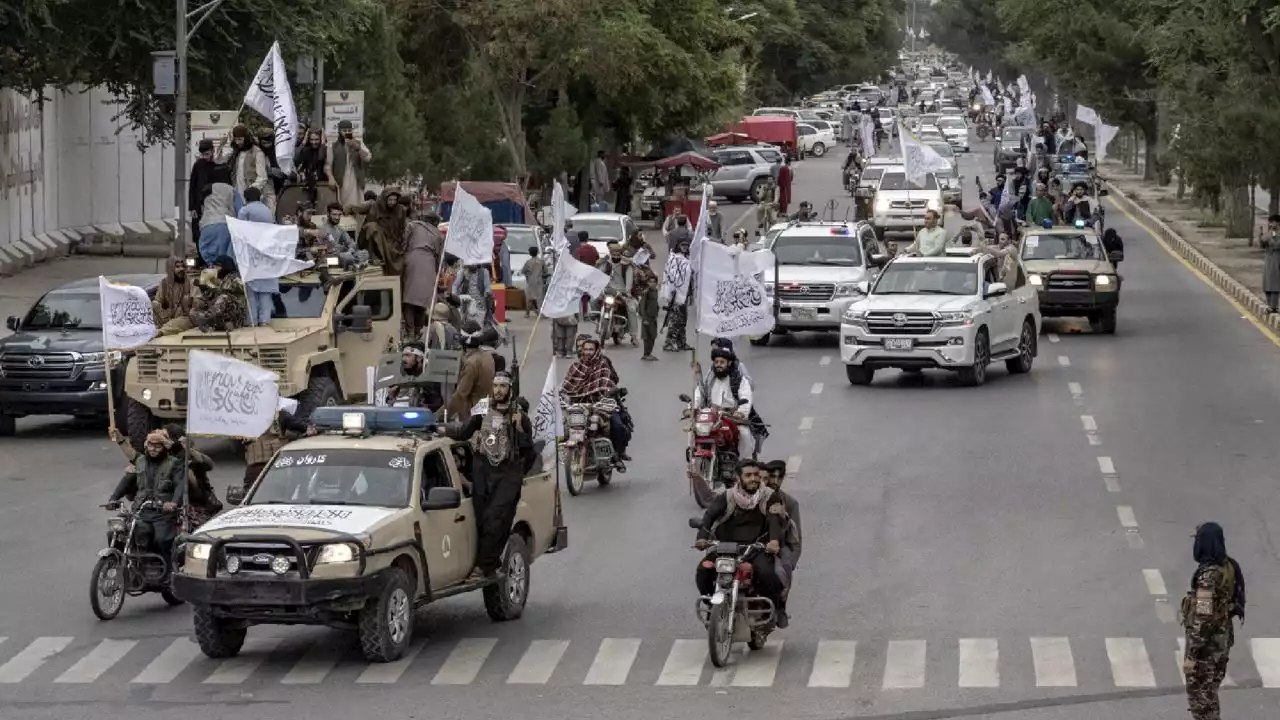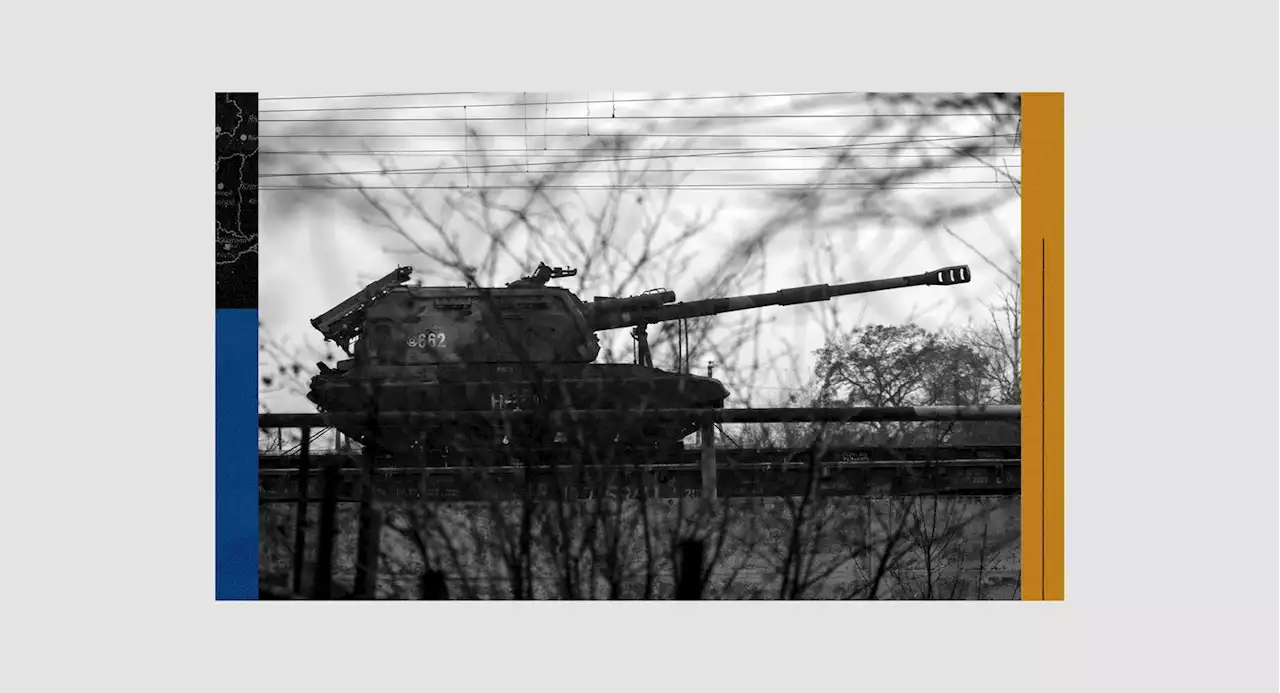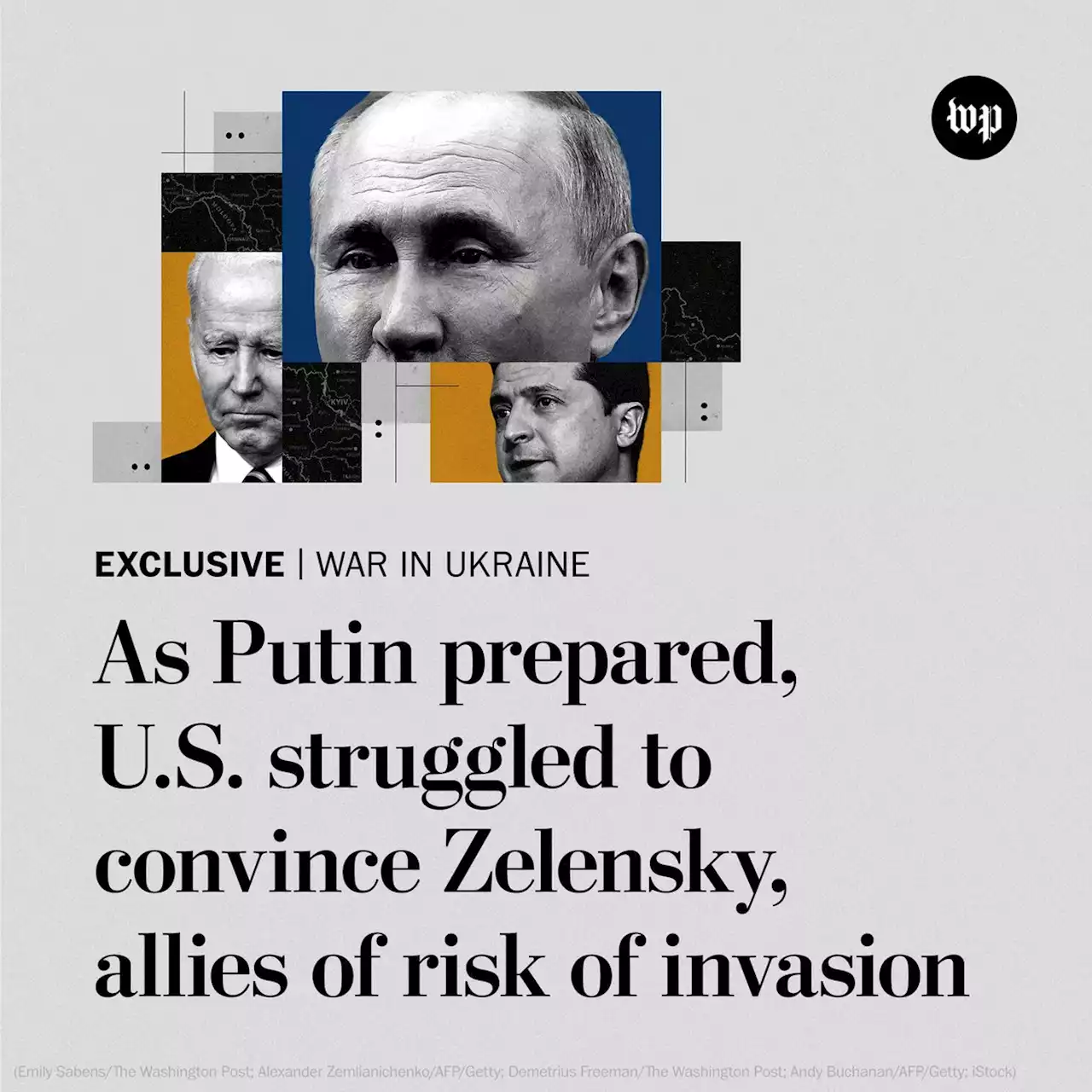This account, in previously unreported detail, shines new light on the road to war and the military campaign in Ukraine, drawn from in-depth interviews with dozens of senior U.S., Ukrainian, European and NATO officials.
at the October briefing, Biden “basically had two reactions,” Sullivan said. First, to try to deter Putin, they “needed to send somebody to Moscow to sit with the Russians at a senior level and tell them: ‘If you do this, these will be the consequences.’ ”
Biden’s advisers were confident Ukraine would put up a fight. The United States, Britain and other NATO members had spent years training and equipping the Ukrainian military, which was more professional and better organized than before Russia’s assault on Crimea and the eastern region of Donbas seven years earlier. But the training had focused nearly as much on how to mount internal resistance after a Russian occupation as on how to prevent it in the first place.
The CIA director also met with another of Putin’s advisers, Nikolai Patrushev, an ex-KGB officer, from Putin’s hometown of St. Petersburg, who ran Russia’s Security Council. He found Zelensky “serious, deliberate, stoic,” a combination of belief and disbelief. He said he would brief his senior teams. But the Ukrainians had “seen a number of Russian feints in the past,” Blinken knew, and Zelensky was clearly worried about economic collapse if his country panicked., set a pattern that would be repeated both privately and in public over the next several months. The Ukrainians could not afford to reject U.S. intelligence wholesale.
“When we smiled back,” Kuleba recalled, the official said, “ ‘I’m serious. Start digging trenches. … You will be attacked. A large-scale attack, and you have to prepare for it.’ We asked for details; there were none.” Yet when it came to Ukraine, U.S. intelligence was hardly an open book. Official guidance prohibited the spy agencies from sharing tactical information that Ukraine could use to launch offensive attacks on Russian troop locations in Crimea or against Kremlin-backed separatists in the east.
French and German officials couldn’t understand why Putin would try to invade and occupy a large country with just the 80,000 to 90,000 troops believed to be massed on the border. Satellite imagery also showed the troops moving back and forth from the frontier. Others posited that the Russians were performing an exercise,
“American intelligence is not considered to be a naturally reliable source,” said François Heisbourg, a security expert and longtime adviser to French officials. “It was considered to be prone to political manipulation.”“I think there were basically three flavors,” especially frustrated French and German officials, who had long suspected that Washington and London sometimes hid the basis of their intelligence to make it seem more definitive than it really was.
“A big part of our focus,” recalled Sullivan, “was basically to say to them, ‘Look, we’ll take the diplomatic track and treat it [as] serious … if you will take the planning for [military] force posture and sanctions seriously.
Kuleba and others in the government believed there would be a war, the Ukrainian foreign minister later said. But until the eve of the invasion, “I could not believe that we would face a war of such scale. The only country in the world that was persistently telling us” with such certainty “that there would be missile strikes was the United States of America.
“All the Western allies wanted to convey that there was an alternative path involving dialogue and respect for Russia as a great power,” said a senior British government official involved in negotiations. “What became increasingly clear was that Russia was not interested in those.” The administration was also sending arms to Ukraine. In December, Biden authorized an additional $200 million in weapons to be drawn from U.S. inventories — even as the Kyiv government, many in Congress and some within the administration itself argued that if the United States really believed a full-scale invasion was coming, it was not enough.
“Where did it take us to?” Kuleba said. “I think this war — with thousands killed and wounded, territories lost, part of the economy destroyed ... is the best answer to those who still advocate the non-provocation of Russia.
against Russian territory or Russian-speaking people — the false flag that intelligence had detected. The propaganda film would be heavy on spectacle, officials said, with graphic scenes of explosions, accompanied by corpses posed as victims and mourners pretending to grieve for the dead. At one point in their conversation, Zelensky asked if he or his family were personally in danger. Burns said Zelensky needed to take his personal security seriously.
For Zelensky, the decision to keep people in the country, where they could fight to defend their homes, was the key to repelling any invasion.Ukrainian officials remained irritated that the Americans weren’t sharing more about their intelligence sources. “The information that we received was, I would call it, a statement of facts without a disclosure of the origins of those facts or of the background behind those facts,” Kuleba recalled.
While Blinken stressed, as he had in previous conversations, the importance of keeping Zelensky and his government safe and intact, he was one of several senior U.S. officials who rebuffed reports that the administration had urged them to evacuate the capital. “What we said to Ukraine were two things,” Blinken later recalled. “We will support you whatever you want to do. We recommend you look … at how you can ensure continuity of government operations depending on what happens.
“But it depends on what he [Putin] does, actually, what extent we’re going to be able to get total unity on the NATO front.”Biden’s comments revealed the cracks in his own administration’s planning, as well as in NATO. Blinken was in Kyiv, vowing that the United States would support Ukraine, in every way short of committing its own forces, if the country was attacked.
Blinken found Lavrov’s responses strident and unyielding. After an hour and a half of fruitless back-and-forth, it seemed there was little more to say. Wallace warned Shoigu that Russia would face fierce resistance if it invaded Ukraine. “I know the Ukrainians — I visited Ukraine five times — and they will fight.”
As the British officials were about to leave, Shoigu spoke directly to Wallace. “He looked me in the eye and said, ‘We have no plans to invade Ukraine’ ” Wallace recalled. “That shows you how much of a lie it was.”A week later, on Feb. 18, Biden called the leaders of several NATO allies and told them the latest U.S. analysis. Biden told reporters in the Roosevelt Room at the White House later that day, “As of this moment, I’m convinced he’s made the decision” to invade.
“To really help Ukraine, it is not necessary to constantly talk only about the dates of a probable invasion,” Zelensky said. Instead, the European Union and NATO should welcome Ukraine into their organizations. “If you discover the plans of somebody to attack a country and the plans appear to be completely bonkers, the chances are that you are going to react rationally and consider that it’s so bonkers, it’s not going to happen,” said Heisbourg, the French security expert.
United States Latest News, United States Headlines
Similar News:You can also read news stories similar to this one that we have collected from other news sources.
 A year since Kabul's fall, thousands of Afghan allies wait in hidingOne year since the Taliban took over Kabul last August 15, at least 74,000 Afghans have applied for a special visa program devoted to bringing U.S. allies like him to safety, and away from the ire of the Taliban.
A year since Kabul's fall, thousands of Afghan allies wait in hidingOne year since the Taliban took over Kabul last August 15, at least 74,000 Afghans have applied for a special visa program devoted to bringing U.S. allies like him to safety, and away from the ire of the Taliban.
Read more »
 Texans reflect on 20-year war a year after it endsOn the day the last troops left Afghanistan, Habibullah Omari also flew out of Kabul. His journey to Texas took him through Tajikistan, Germany and Virginia. After nearly three months of travel, Omari landed in Austin on Nov. 27, 2021.
Texans reflect on 20-year war a year after it endsOn the day the last troops left Afghanistan, Habibullah Omari also flew out of Kabul. His journey to Texas took him through Tajikistan, Germany and Virginia. After nearly three months of travel, Omari landed in Austin on Nov. 27, 2021.
Read more »
 Zelensky reveals why he didn't warn his citizens of Russian invasionThe Ukrainian leader had been given detailed information on Russia's invasion from U.S. officials. But he said telling the public would've backfired.
Zelensky reveals why he didn't warn his citizens of Russian invasionThe Ukrainian leader had been given detailed information on Russia's invasion from U.S. officials. But he said telling the public would've backfired.
Read more »
 Today in history: Aug. 15During World War II, Allied forces landed in southern France in Operation Dragoon, and more events that happened on this day in history.
Today in history: Aug. 15During World War II, Allied forces landed in southern France in Operation Dragoon, and more events that happened on this day in history.
Read more »
 Analysis: As earnings support U.S. stock rebound, worries over future profits growStronger-than-expected corporate earnings have helped fuel the rebound for U.S. stocks but some investors are pointing to potential risks ahead for profits that could sap the market's momentum.
Analysis: As earnings support U.S. stock rebound, worries over future profits growStronger-than-expected corporate earnings have helped fuel the rebound for U.S. stocks but some investors are pointing to potential risks ahead for profits that could sap the market's momentum.
Read more »
 Five takeaways from The Post’s examination of the road to war in UkraineA Washington Post examination of the road to war in Ukraine, and Western efforts to unite to thwart the Kremlin’s plans, draws on extensive interviews with more than three dozen senior U.S., Ukrainian, European and NATO officials.
Five takeaways from The Post’s examination of the road to war in UkraineA Washington Post examination of the road to war in Ukraine, and Western efforts to unite to thwart the Kremlin’s plans, draws on extensive interviews with more than three dozen senior U.S., Ukrainian, European and NATO officials.
Read more »
